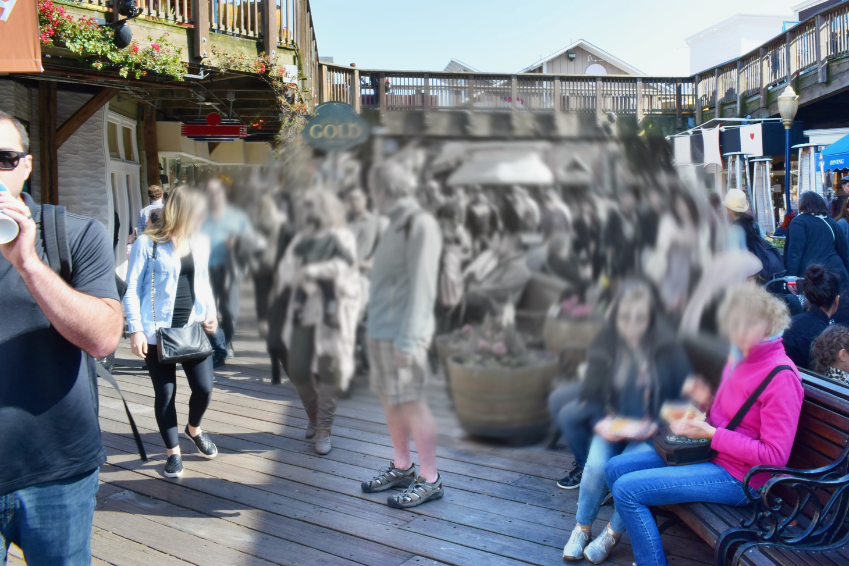These are the 10 most important Retinal Degeneration symptoms at a glance

Altered perception in the central visual field is one of the 11 most important symptoms of Retinal Degeneration symptoms
Retinal degeneration is a serious eye disease that gradually impairs the function of the retina and leads to visual deterioration.
Retinal Degeneration symptoms are often subtle and can be insidious. It is important to recognise the signs to enable early diagnosis and treatment. The following symptoms could indicate Retinal Degeneration symptoms:
Changes in central vision
These changes affect the ability to perceive clear details in the centre of the field of vision. Affected individuals may have difficulty reading, recognising faces or viewing fine details.
Letters may appear blurred and central vision gradually becomes blurred. Activities such as reading, driving or recognising faces may be impaired. It is important to keep an eye on such changes and see an ophthalmologist to diagnose possible retinal degeneration and take timely action.
Decrease in colour perception
These changes affect the ability to perceive clear details in the centre of the field of vision. Affected individuals may have difficulty reading, recognising faces or viewing fine details.
Letters may appear blurred and central vision gradually becomes blurred. Activities such as reading, driving or recognising faces may be impaired.
A loss of colour perception, particularly of hues in the blue-yellow range, may occur. Colours may appear paler or less vivid.
Distorted vision
A characteristic Retinal Degeneration symptoms is the appearance of distorted vision. Affected people may perceive straight lines as curved or wavy.
This phenomenon is often referred to as metamorphopsia and can affect central vision. People with retinal degeneration may have difficulty recognising clear contours of objects, making reading and visual perception difficult.
Distorted vision is an important warning sign that can indicate possible retinal problems.
Central visual field loss or scotoma
The presence of central visual field defects is a characteristic symptom in patients with Retinal Degeneration symptoms.
These visual abnormalities are characterised by the appearance of scotomas or visual gaps in the central field of vision, resulting in a significant impairment of visual perception.
Such deficits can significantly impair the recognition of fine details, reading, identification of faces and visual orientation in general.
By affecting central vision, these deficits impair the ability to perform everyday activities and have a potentially significant impact on the quality of life of those affected.
This symptom is therefore a diagnostically relevant indication of Retinal Degeneration symptoms.
Sensitivity to glare
A common symptom of Retinal Degeneration symptoms is increased sensitivity to glare. Affected people experience increased sensitivity to bright light, particularly in strong daylight or bright artificial light.
This phenomenon, also known as photophobia, can lead to discomfort, reduced visual quality and an impaired ability to navigate in environments with changing light conditions.
The increased sensitivity to glare often requires the use of sunglasses or other light filters to ensure adequate visual functionality.
Slow adaptation to darkness
Here we are talking about slow adaptation to darkness, also known as nyctalopia. Patients in the clinic experience difficulty transitioning from well-lit environments to dark or darkened areas.
This reduced ability to adapt in low light conditions leads to a temporary deterioration in vision and increased uncertainty in dim light environments.
This slow adaptation to darkness can impair night-time mobility and significantly affect overall visual comfort. It is therefore an important feature of retinal degeneration diagnosis.
Deterioration of night vision
The symptom “Deterioration of night vision” can also be associated with the symptom “Slow adaptation to darkness”.
Both symptoms indicate that people with Retinal Degeneration symptoms have difficulty navigating in low light conditions and recognising objects in the dark. D
he slow adaptation to darkness could mean that those affected need a particularly long time to adapt to changing light conditions, while the deterioration in night vision indicates a general impairment of vision in low light.
Slow contrast change
The Retinal Degeneration symptoms “Slow adaptation to darkness”, “Glare sensitivity” and the symptom “Slow contrast change” are closely related.
Slow contrast change as a sign of retinal degeneration manifests itself in the reduced ability to switch quickly between different brightness levels.
Contrast changes are crucial for visual perception as they allow us to identify contours, shapes and details in the environment.
In retinal degeneration, affected individuals may have difficulty adapting quickly to different lighting conditions. This leads to slower processing of visual stimuli.
Difficulty recognising details
Retinal degeneration can cause affected individuals to have difficulty recognising fine details in their surroundings. Visual resolution and the ability to recognise clear contours, structures and small elements are impaired.
This symptom can affect the recognition of faces, text and other objects with little detail, limiting overall vision. This can make everyday life difficult for those affected, including activities such as reading and recognising objects.
Limited mobility
The sum of the Retinal Degeneration symptoms discussed previously can lead to remarkably limited mobility in those affected.
The combination of these symptoms can have a significant negative impact on the ability to move around safely and recognise obstacles in time:
- Changes in central vision
- Reduced ability to recognise details clearly
- Limited colour perception
- Distorted vision
- Visual field defects
- Increased sensitivity to glare
- Slow adaptation to darkness
- Slow contrast change
The resulting impairment of visual perception can make it difficult for those affected to orientate themselves in familiar or unfamiliar surroundings and to carry out everyday activities independently.
Impaired mobility can have a significant impact on the quality of life of those affected and limit their independence in everyday life. The limited perception of surroundings can lead to uncertainty when walking and orientating.
Note: In some cases, the symptoms overlap with the symptoms of the diagnosis of retinitis pigmentosa and the diagnosis of macular degeneration.
Retinal Degeneration symptoms: Individual variation and early medical examination
It is important to note that these symptoms can vary from person to person. If you notice signs of retinal degeneration, an immediate medical examination is advisable to establish the exact diagnosis and discuss appropriate treatment measures.
Early detection and intervention can help slow the progression of the disease and protect your vision.



